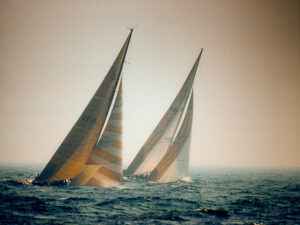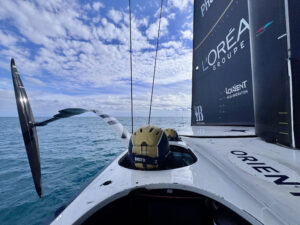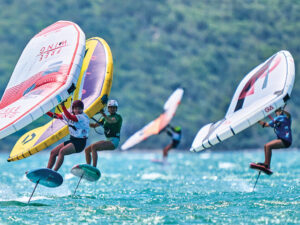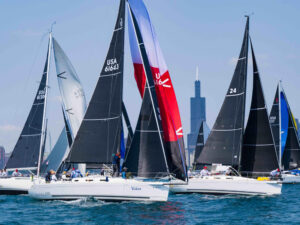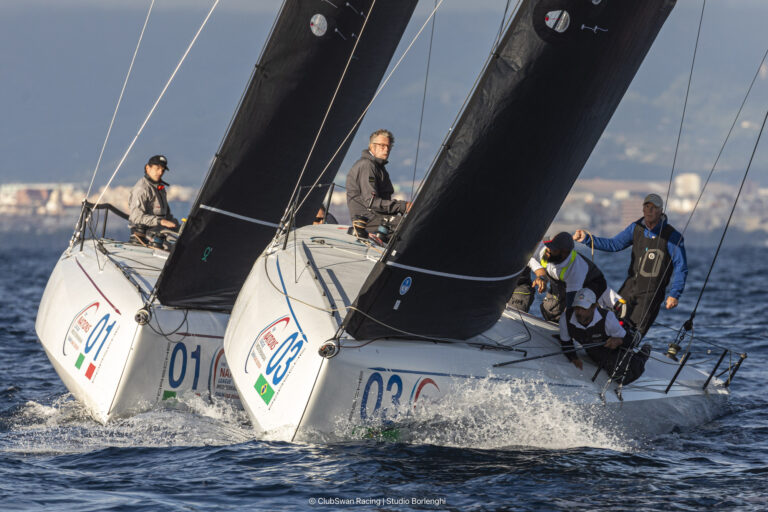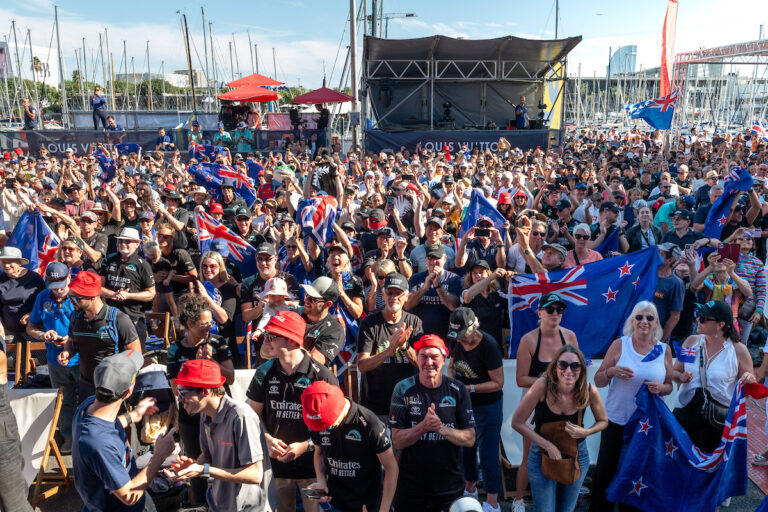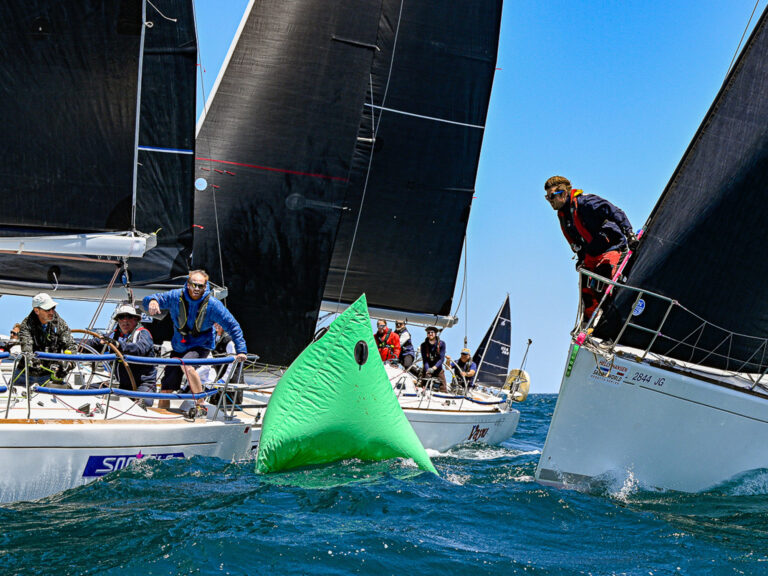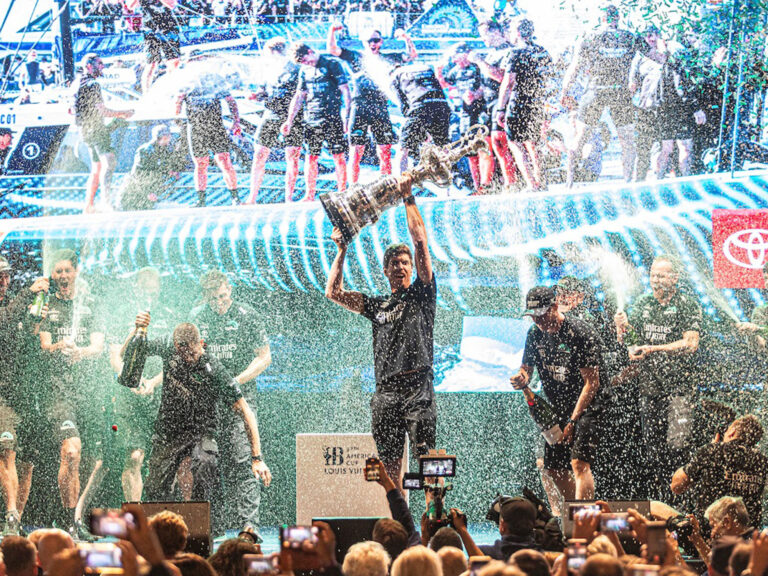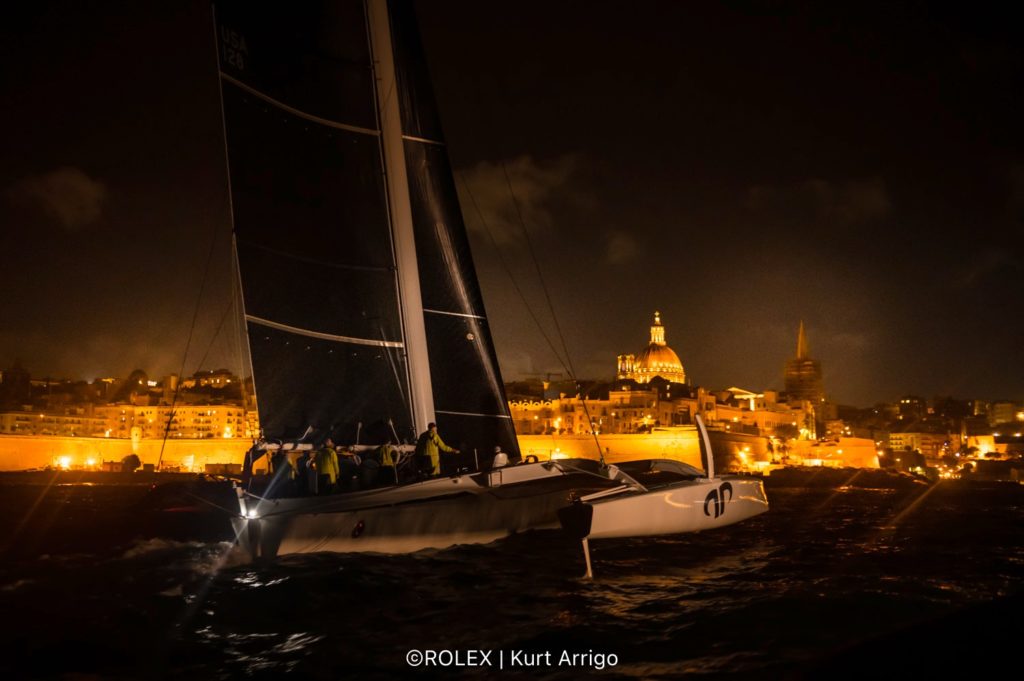
The four large racing multihulls have all finished the 42nd Rolex Middle Sea Race with Jason Carroll’s Argo, the American MOD70, in the box seat having wrapped up the outright race record, multihull line honors and, for the moment, top of the leader board after MOCRA time correction. Carroll was understandably delighted: “It was an awesome race. It had a little bit of everything. We love the event, we love the course and, obviously, we are super excited to have broken the record and won line honors this year.”
Argo’s elapsed time was 33 hours 29 minutes and 28 seconds, obliterating the previous race record of 47 hours 55 minutes and three seconds, set by the monohull maxi, Rambler, in 2007
The three most powerful monohulls are also home and hosed down. The 30.48m/100ft VPLP/Verdier designed Comanche (CAY) led by Mitch Booth is the clubhouse leader, having taken monohull line honors, set a new monohull race record and outplayed their immediate opposition under IRC time correction. Booth was emphatic in his praise for this year’s race: “The Rolex Middle Sea Race has always been one of the pinnacle offshore races and the top guys love coming here. The line-up was great. It was a real honor to race against Skorpios and Rambler.”
Comanche’s elapsed time of 40 hours 17 minutes and 45 seconds was also well inside the previous best.
Brian Thompson, one of the Argo afterguard offered some insight into their apparent clean sweep and mesmerizing finish time. “We were very cautious at the start but got away cleanly,” he advised. “It was then great racing with Maserati and Mana. We were very evenly matched to Syracuse, when we just got into a lead, before Maserati got a bit of an edge on us through the Strait. We were then absolutely level at Strombolicchio.”
At this point, it looked as though Maserati had made a key gain.
“We were very impressed with the way they were sailing,” said Thompson, “They made a seven-mile gain in the 22-knot downwind leg.”
However, there was another twist to come. “Just before dawn on Sunday, we were going through the middle of the Egadi Islands. Ideally, we wanted to be further offshore,” explained Thompson. “On the weather models you could see there was a wind hole behind Sicily. If you got too far south you could run out of the corridor of wind blowing from the north-east.” This is where Argo’s apparent disadvantage became an advantage. “We could see what was happening,” said Thompson. “When Maserati slowed, we knew they were getting into the light air. It happened really fast. The wind dropped. Maserati carried on a bit further, while we gybed and that got our seven miles back.”
It still was not over.
“There was so much going on,” commented Thompson. “A line of squalls came across and we suddenly had 43 knots. We went into it with a full main and gennaker. We had to go head to wind to get down to just a double reefed main. Then as the wind dropped, we had to get the same sails back up again.”
It remained super tricky all the way past Pantelleria. Argo tried to cover while Maserati sought new breeze closer to Africa. “In the end, we both got the wind at the same time, and held our lead. It was 25 knots downwind and more locked in,” he said. Despite some hair-raising moments on the final leg and a 30-knot passage through the tight Comino Channel, the race was now won. For Thompson, it had been a “once in a lifetime weather opportunity.”
The monohull line honors contest had been no less enthralling. Skorpios crossed the line second on the water, six hours inside the old record, but 1.5 hours behind Comanche. Fernando Echavarri, the racing skipper, remarked: “We learnt a lot in the 42 hours, in all kinds of conditions – light winds, strong winds, sail changes. It has been a unique opportunity for the team to grow up.” Despite the disappointment of not repeating their line honors from this summer’s Rolex Fastnet Race, Echavarri could still draw positives: “It was great to line up with boats like this. To do the Rolex Middle Sea Race with such a fleet, including Comanche and Rambler, is just incredible. We are looking forward to the next race against them.”
Ahead of the race, Mitch Booth was confident the race record would be broken. His doubt was how the Comanche crew would perform against the opposition. “One of the key points of the race was going into the Strait of Messina,” he said. “We thought whoever popped out the other end first would have a big advantage with a building breeze on the other side.”
Managing to stay close to Skorpios gave the crew confidence.
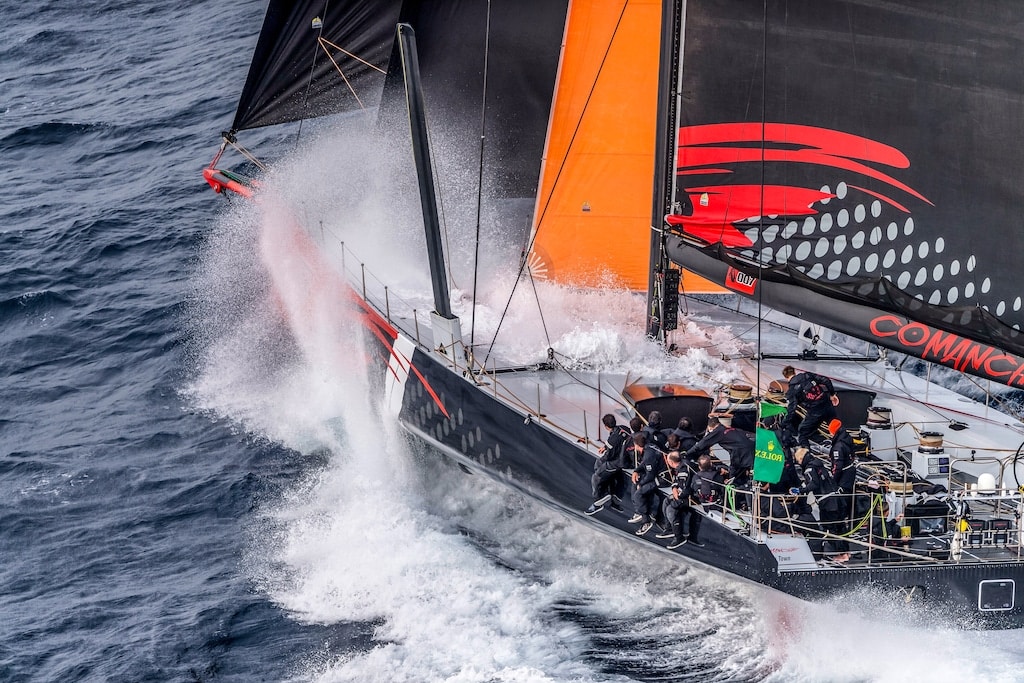
“After passing Stromboli we felt we were in the game with Skorpios.” commented Booth. “We had to sail a smart tactical race to stay in contact. We had a few problems with some sail damage which set us back a bit, but Comanche is really fun to sail especially when the breeze is up and there is a lot of downwind reaching.” Apparently, the new owner just loved every minute of it. “No better way to start racing offshore than the Rolex Middle Sea Race this year,” added Booth.
Navigator, Will Oxley, was keen to share the kudos for a job well done. “We had a very strong afterguard. Mitch Booth, Kyle Langford and Tom Slingsby all contributed to the decision-making of the boat,” he emphasized. He went on to explain the final critical moment in the race came at the north-west corner of Sicily, just as with Argo.
“We tried hard to stay to the east of the low-pressure system rolling across the racetrack until the western end of Sicily,” he explained. “None of the meteorological models were lining up. There was a lot of thunderstorm activity and a number of large wind holes to be negotiated. We had to make a plan and analyze what we think was going to happen. We used whatever data we could to make sense of it all. It really paid off.” And just as Maserati strayed into the quicksand offering opportunity to Argo, so too did Skorpios. Comanche was well-positioned to take the chance, and rolled into a lead it would never relinquish.
As for Rambler, they sailed their usual polished performance, but were simply outgunned by more powerful opponents. Finishing the race in 46 hours 20 minutes 25 seconds, George David finally beat the time he set back in 2007 at the sixth time of asking.
Ed’s note: The bulk of the fleet are now streaming into Malta. For live updates, visit: https://www.rolexmiddlesearace.com/

